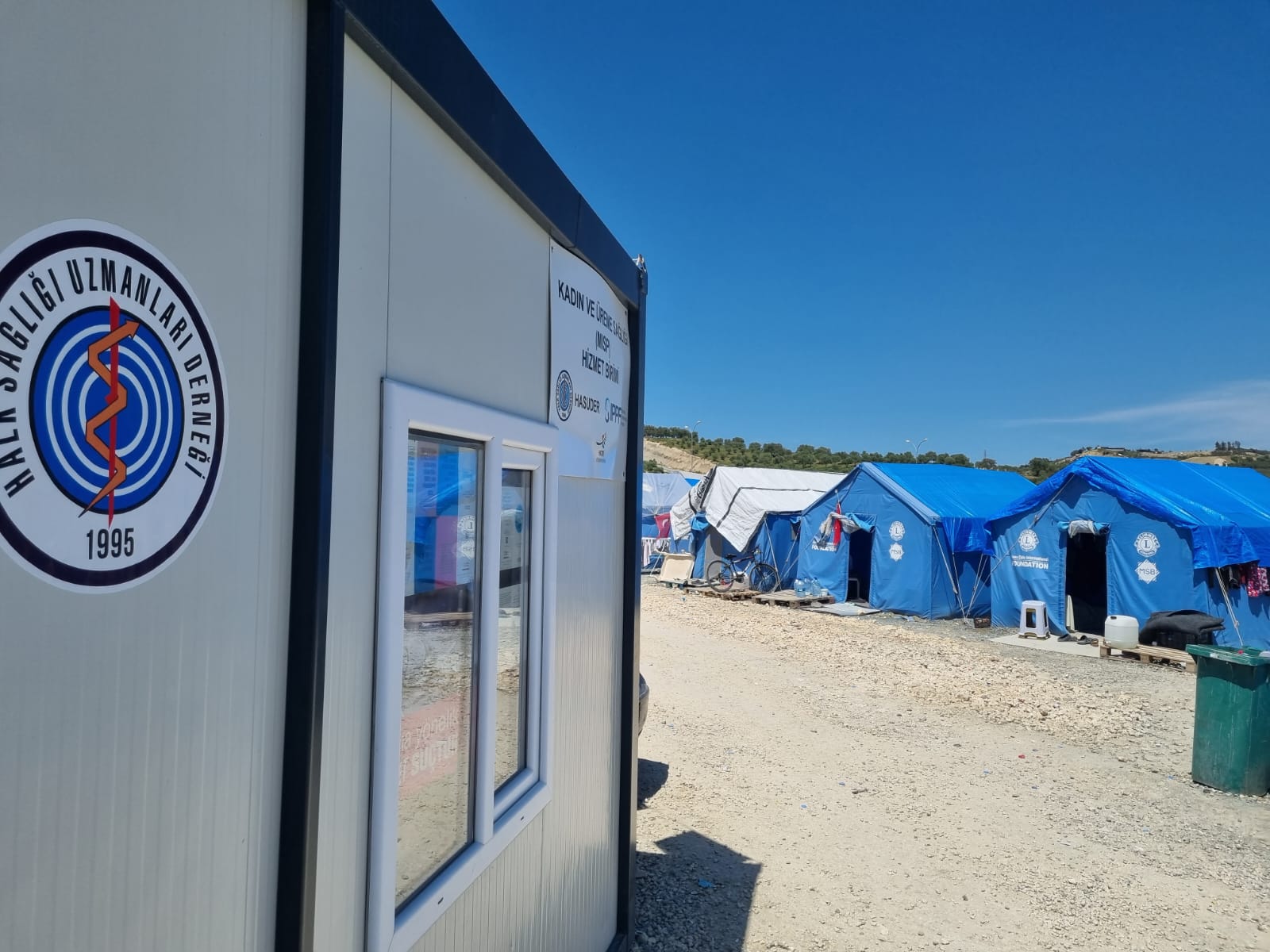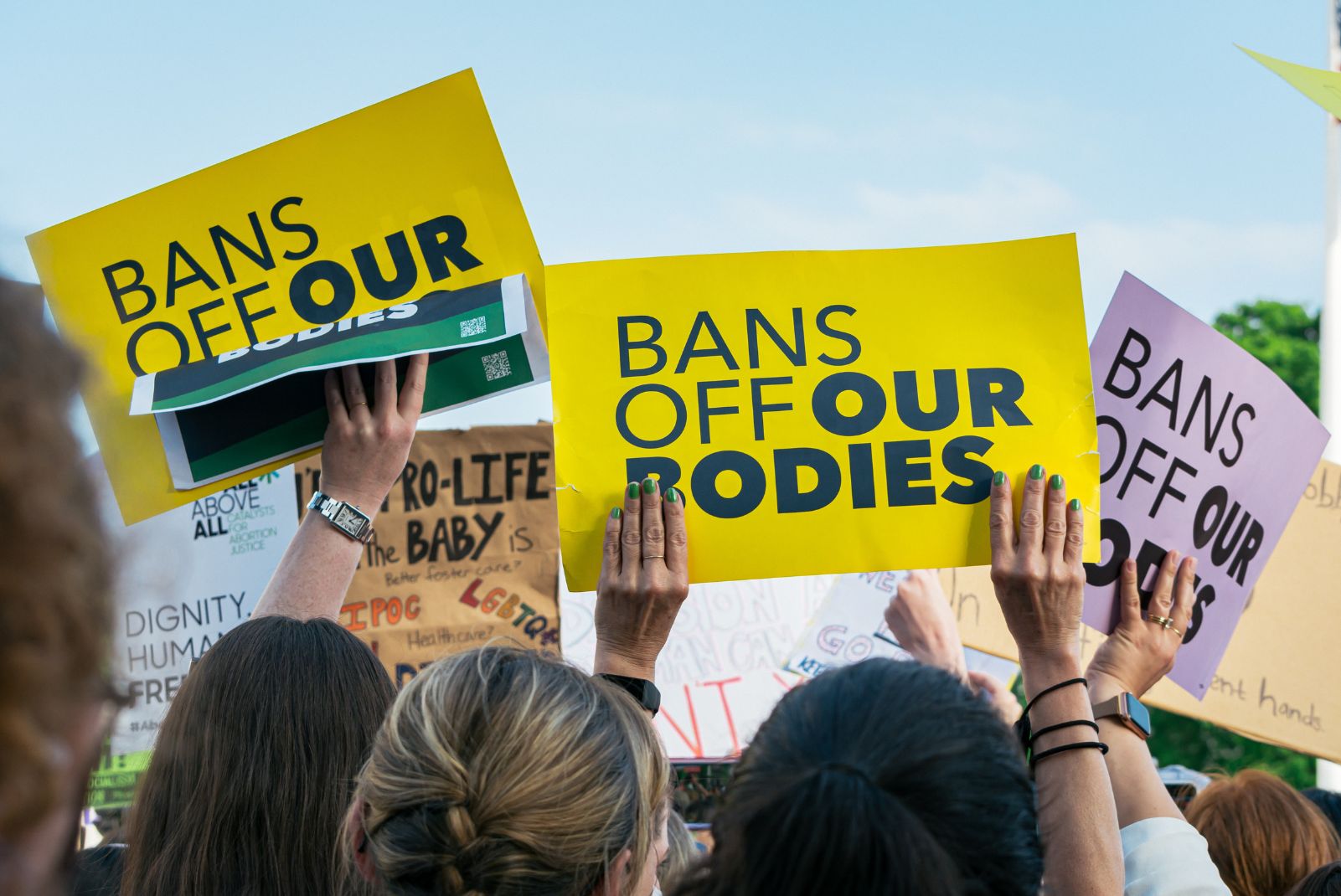Latest press releases
A selection of stories from across the Federation

Netherlands
Rutgers triumphs in landmark court case against lies, online hate and disinformation
Rutgers, the Netherlands’ leading sexual and reproductive health expert and IPPF’s Member Association, has today secured a landmark legal win against an ultra-conservative group.
For media enquiries


| 21 September 2023
IPPF Condemns the Arson Attacks on Schools Delivering Sex Education in Belgium
IPPF condemns the multiple school arsons across the French-speaking Wallonia region in Belgium over the past week, which have been connected to public protests against the compulsory “education in relationships, affective and sexual life” (EVRAS) program. These targeted attacks are evidence of a growing movement opposed to Comprehensive Sexuality Education (CSE) curricula, and the duty of states to support and protect children in their sexual development. IPPF is deeply concerned that a small cadre of those with extremist views are targeting schools with violence, which serve as vital safe spaces for children and young people to become educated, empowered citizens. In the face of global misinformation campaigns and attempts to silence the organizations and institutions providing high quality comprehensive sexuality education, IPPF affirms that these programs empower children and young people to protect their health and well-being and support them in developing healthy and positive relationships throughout their lives. Dr. Alvaro Bermejo, IPPF Director General said: “The violent attacks on schools in Belgium are proof of how anti-rights campaigners are multiplying around the world and fuelling divisions by spreading false or misleading information about existing education curricula. We know from decades of research and our own programmatic experience in this area that comprehensive sexuality education helps children and young people to understand and enjoy their sexuality, take responsibility for their own sexual and reproductive health and rights and respect other people’s. We stand with the educators in Belgium who are delivering on a sex education curriculum that promotes children and young people’s rights.” Research shows that parents and young people agree that sexuality education should be offered in schools, and that parents are willing to join these programs, particularly as they help their children to navigate relationships and sexuality amid the complex challenges of the digital era. Many governments around the world, including Belgium, are making sexuality education programs a national priority to protect all children and young people from harm. IPPF stands with the schools and educators delivering this vital education in Belgium and around the world, and we remain committed to providing children and young people with the knowledge to protect and promote their safety, health and wellbeing. For media inquiries, contact [email protected] Banner image: Shutterstock

| 13 June 2023
Unmet need for contraceptives quadruples in parts of earthquake-affected Türkiye
The unmet need for contraceptives is estimated to have soared to nearly 50% in some parts of Turkiye, including Hatay province, following the earthquakes on 6 February 2023. This is a worrying trend, as the unmet need had already been on the rise from 6% in 2013 to 12% in 2018 in Turkiye. The Association of Public Health Specialists (HASUDER), IPPF’s local partner in Türkiye, is the only provider of contraception in some camps for internally-displaced persons (IDPs) following the devastating 7.8 and 7.6 earthquakes that killed more than 50,000 people in Turkey and displaced millions. Professor Bülent Kılıç, head of HASUDER, said that while government services are mandated to deliver contraceptive supplies to health clinics inside IDP camps, services have generally focused on pregnancy and birth services. He said: ”Physicians who provide contraceptive methods, including inserting intrauterine devices (IUDs) are rare or fully absent. There is no awareness about this service gap.” Kılıç also describes serious hygiene problems for women in the camps, where basic needs such as clean toilets and bathrooms are not being met. Kılıç continued: “We have seen that contraceptive services are only provided in gynaecology clinics in hospitals, and even then it is offered very little and only if requested. This issue is related to the government's perspective on women and women's rights.” HASUDER’s reproductive health unit, which was established with support from IPPF and Hatay Municipality in Lions and Mersin Municipality Tent City in Hatay, has been providing sexual and reproductive health services to 3,000 people since March 2023. These services include maternal and neonatal care, contraceptive care, safe abortion care, and counselling for sexual and gender-based violence. HASUDER is providing contraceptive methods including intrauterine devices, oral contraceptives and condoms, but reports that underwear, sanitary pads, birth control pills, emergency contraception pills and condoms are still among the most needed items for women. HASUDER has also reported a rise in unplanned pregnancies due to the dearth of contraceptives available. Violence against women and girls - already a serious issue in Turkey - is exacerbated in every humanitarian emergency, and persists in the IDP camps. IPPF estimates that 3.9 million women of reproductive age, over 175,000 pregnant women, and more than 1.2 million adolescent girls (aged 10-19) were affected by the earthquakes in Türkiye. We anticipate more than 8,700 currently pregnant women will experience delivery complications. For media enquiries, please contact [email protected] or Nerida Williams, Senior Humanitarian Communications Advisor, [email protected] About the International Planned Parenthood Federation The International Planned Parenthood Federation (IPPF) is a global service provider and advocate of sexual and reproductive health and rights for all. For 70 years, IPPF, through its 118 Member Associations and seven partners, has delivered high-quality sexual and reproductive healthcare and helped advance sexual rights, especially for people with intersectional and diverse needs that are currently unmet. Our Member Associations and partners are independent organisations that are locally owned, which means the support and care they provide is informed by local expertise and context. We advocate for a world where people have the information they need to make informed decisions about their sexual health and bodies. We stand up and fight for sexual and reproductive rights and against those who seek to deny people their human right to bodily autonomy and freedom. We deliver care that is rooted in rights, respect, and dignity - no matter what.

| 08 April 2023
Texas judge suspends approval of abortion pill in horror move for U.S abortion access
Texas judge, Matthew Kacsmaryk, has suspended the U.S. Food and Drug Administration's (FDA) approval of the abortion pill Mifepristone in a horror move for abortion access across the United States. The decision will result in a nationwide ban on Mifepristone in seven days, with the FDA given one week to appeal the ruling. While the ban also affected access in states that have secured abortion post-Roe v Wade, a conflicting ruling from Judge Thomas O. Rice from a federal court in Washington state ordered the FDA to maintain access to Mifepristone in 17 democratic states and Colombia District – effectively putting access to the pill into limbo. Mifepristone, which has been FDA-approved for more than 22 years and has a safety record of over 99%[i], is taken alongside the drug Misoprostol during medical abortion procedures. Since then, it has been used by over 5 million[ii] Americans and was used in more than half of abortions nationwide last year. While Misoprostol can be used alone in medical abortion, people should have access to the full spectrum of abortion care options. Mifepristone is also used in the medical management of miscarriage and second and third-trimester pregnancies when the fetus has died before birth. While the ruling does not prohibit the FDA from making a new authorization for Mifepristone, this will likely take many months. Severe disruption to abortion care services, healthcare services and supply chain issues are expected as healthcare providers and pharmacies grapple with legality, stock, retraining and reeducation. Beth Schlachter, Director of Global Advocacy for the International Planned Parenthood Federation, said: "For 22 years, Mifepristone has been safely used in medical abortion care across the U.S., allowing healthcare providers to deliver safe, practical and discreet care to people who have chosen to end their pregnancies, regardless of their economic status or ability to travel. "In one fell swoop, anti-abortion extremists have once again stripped people of their rights in another blow to liberty. This horror ruling based on junk science, wilful distortion of fact and extreme political agendas will profoundly affect the lives of millions of people already struggling to access the care they need, especially in states where abortion is already banned." Anti-abortion extremists deliberately filed the case against the approval of Mifepristone in the Amarillo division of the Northern District of Texas — a single-judge division where cases are automatically assigned to Judge Matthew Kacsmaryk, a conservative judge appointed by former President Trump. The group claim that: "the statutory basis on which the FDA's approval of Mifepristone was issued 22 years ago is invalid" - an assertion both the Government Accountability Office and FDA have previously investigated and put to rest "an 1873 vice law that made it illegal to send "obscene, lewd or lascivious" material through the mail applies to abortion pills" - federal courts have consistently ruled it doesn't apply to lawful abortions "the drug's original approval wasn't supported by evidence of safety and efficacy" — a claim that medical and policy experts have continuously discredited Beth Schlachter, added: "The implementation of a national ban on Mifepristone via a state court debunks one of the principal anti-abortion arguments in the Roe v Wade case - that the ruling curtailed state freedom and that abortion rights should be defined on a state-by-state basis. "This weaponization of federal courts by anti-abortion extremists proves just how dangerous the overturning of Roe v Wade is for everyday Americans, whose access to healthcare now lies in the hands of fanatical religious extremists determined to disrupt, harass and deceive until they end access to abortion care and long-held sexual and reproductive rights for good." The International Planned Parenthood Federation's local partner, the Planned Parenthood Federation of America, will continue to provide abortion care where safe and legal to do so. Those seeking medical abortion can also access care via AidAccess and WomenonWeb. At least two abortion networks, Trust Women and Whole Womans Health, have also announced that they will not immediately stop prescribing Mifepristone and will await a directive from the FDA – a move known as a conscientious provision which refers to providers who continue to provide care despite the legal parameters. Alongside its partner and other reproductive health organizations, IPPF will keep fighting for access to abortion care, freedom from stigma and freedom from criminalization until everyone, everywhere, is free to make choices about their sexuality and well-being. [i] https://www.plannedparenthood.org/uploads/filer_public/42/8a/428ab2ad-3798-4e3d-8a9f-213203f0af65/191011-the-facts-on-mifepristone-d01.pdf [ii] Ibid For media enquiries, please contact Karmen Ivey at [email protected] or [email protected] About the International Planned Parenthood Federation The International Planned Parenthood Federation (IPPF) is a global service provider and advocate of sexual and reproductive health and rights for all. For 70 years, IPPF, through its 118 Member Associations and seven partners, has delivered high-quality sexual and reproductive healthcare and helped advance sexual rights, especially for people with intersectional and diverse needs that are currently unmet. Our Member Associations and partners are independent organizations that are locally owned, which means the support and care they provide is informed by local expertise and context. We advocate for a world where people have the information they need to make informed decisions about their sexual health and bodies. We stand up and fight for sexual and reproductive rights and against those who seek to deny people their human right to bodily autonomy and freedom. We deliver care that is rooted in rights, respect, and dignity - no matter what.

| 08 March 2023
Statement on France's decision to enshrine abortion rights in the constitution
Today, on International Women’s Day, France has made it clear to the world that they stand shoulder to shoulder with women and girls in support of their non-negotiable freedoms by committing to enshrining abortion as a fundamental human right within the French constitution. We applaud President Macron for this decision. We want to thank our Member Association, Mouvement Français pour le Planning Familial and the feminist movement for never giving up the fight for women and people who want to end their pregnancy on their own terms with dignity, care and respect. This momentous decision comes at a time when safe abortion care is under attack at an unprecedented level in the global north. We hope this decision inspires other nations to do more to protect the privacy, dignity and human rights of women and girls from political extremists who seek to force women and girls into giving birth. We need more courage and action from the national leaders to protect and support women and girls. If you are a politician who believes in human rights; act now without fear. If you are someone who can vote or organize; demand more of your government, take to the streets, let them hear your voice, take your pen to the ballot if they do not listen. IPPF will continue to work with activists, feminist movements, politicians and communities to protect and advance abortion care without apology and without fear. Today and every day we stand with women and girls, everywhere.

| 21 February 2023
Colombia decriminalizes abortion: one year anniversary
Profamilia – an IPPF Member Association and the leading sexual and reproductive rights organization in Colombia – is celebrating the first anniversary of the decriminalization of abortion across the country. The move - Ruling C-055 - which allows abortion up to 24 weeks of gestation under any circumstance is saving lives across Colombia, and means those who have an abortion no longer face prosecution or criminalization. A historic step for the rights of women and pregnant people both in the country and across Latin America. Over the last year, Profamilia via its nationwide network of more than 50 clinics has helped guarantee sexual and reproductive health and rights, focusing on providing safe abortion care services in person as well as the provision of telemedicine for rural women. For a country which sees 132,000 cases annually of complications from unsafe abortions and 70 women lose their lives each year – the shift in focus to abortion as a public health issue means healthcare providers can now focus on providing life-saving care and ending unsafe abortion. Alongside the ruling, the Ministry of Health, has also regulated abortion services throughout Colombia via Resolution 051, reiterating that abortion is an essential and urgent health service, which women, including migrant women, and pregnant people (transgender men, trans masculinities, non-binary people, among others) must be able to access without restriction and for free. Further rulings also embeds the provision of sexual and reproductive health information into Colombian health services. Marta Royo, the Executive Director of ProFamilia, said: "Profamilia's commitment will always be to provide comprehensive, humanized and safe services that allow free and informed decision making, and we reiterate this today” "After one year it is possible to see the progress the country has made in terms of reproductive autonomy and rights for women and pregnant people. However, we must move from text to action, and ensure that decriminalization means healthcare. Profamilia's commitment will always be to provide comprehensive, humanized and safe services that allow free and informed decision making." Eugenia López Uribe, Regional Director of IPPF for the Americas and The Caribbean.
















